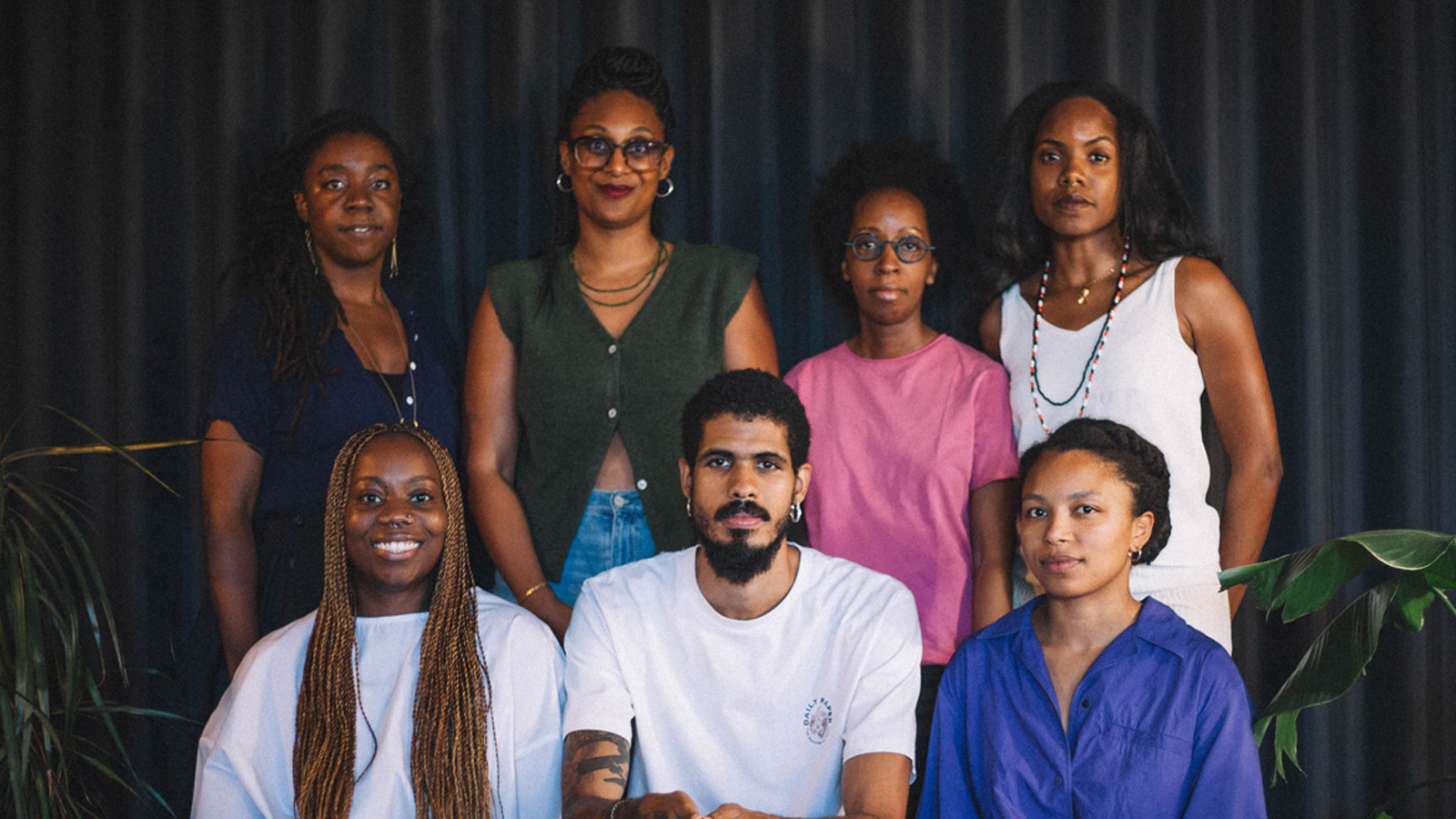'Affective Ecologies' – The current relevance of Amílcar Cabral's thought
Event Slider
Date
- / Cancelled / Sold out
Location
Studio Centro de Arte Moderna GulbenkianIn Portuguese, with simultaneous translation into English and interpretation into Portuguese Sign Language.
In partnership with Fundação Calouste Gulbenkian and taking Amílcar Cabral’s thinking as a starting point, the ‘Affective Ecologies’ project selected four artists to carry out two-week exchanges in October, in an intensive artistic residency at Hangar – Centro de Investigação Artística in Lisbon.
The selection was made by means of an open call which resulted in 68 applications from Angola, Cape Verde, Guinea-Bissau, Mozambique and São Tomé and Príncipe. In residence are Carla Rebelo (São Tomé and Príncipe), Carina Capitine (Mozambique), Wyssolela Moreira (Angola) and Yuran Henrique (Cape Verde).
Carla Rebelo is a self-taught visual artist who lives and works in Barcelona, exploring processes of identity construction through photography, archive, video and text. For Mozambican artist and curator Carina Capitine, body, nature and sensuality are the stage for the materialisation of her imagination, and art is the engine for giving voice to the experiences of marginalised communities.
Wyssolela Moreira is a multidisciplinary artist and art director who uses mixed-media collage, writing, photography, installation, textiles, video art and performance to investigate the complexities of an ‘I’ influenced by neo-colonial normativity. For his part, Cape Verdean Yuran Henrique explores the potential of materials such as fabrics, steel and pigments to create his works, promoting reflections on perception, representation and hegemonic forms of knowledge.
The results of the residency are now presented in a programme curated by Cindy Sissokho, Paula Nascimento and Mónica de Miranda, creating a space for reflection on Amílcar Cabral’s thought through readings and talks.
Speakers
-
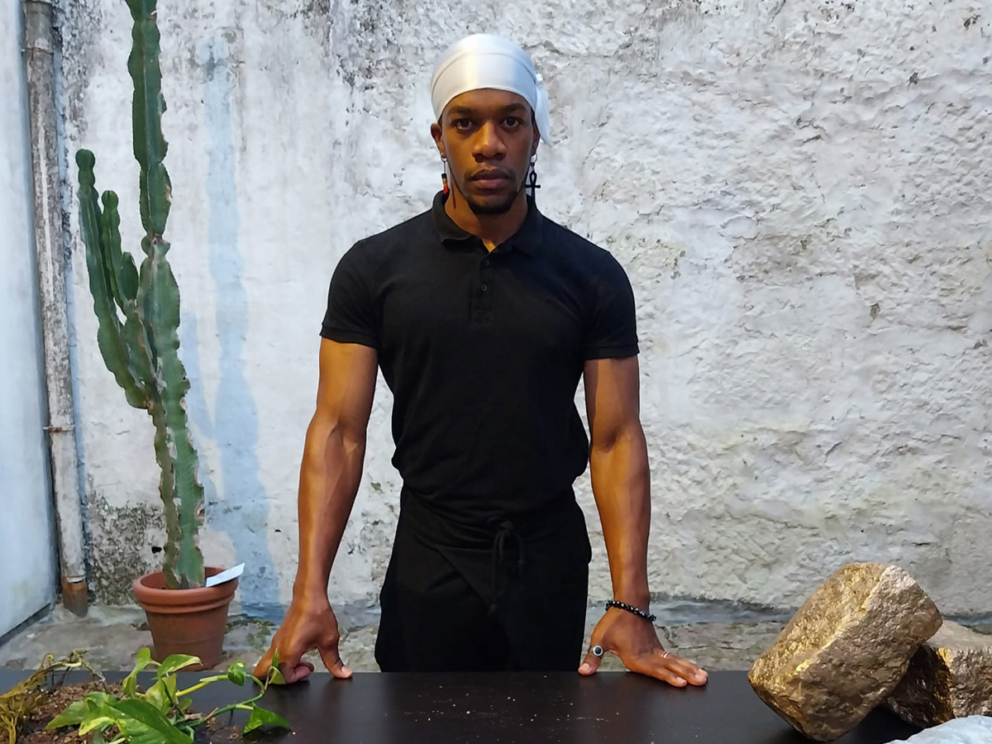
Apolo de Carvalho
Apolo de Carvalho was born on the island of Santiago, Cape Verde. He is a timeless intellectual, researcher, curator and poet. He is currently a PhD candidate in the Post-Colonialisms and Global Citizenship Programme at the Centre for Social Studies of the University of Coimbra, and have FCT scholarship. He holds a master’s degree in International Relations from the Faculty of Economics of the University of Coimbra and a bachelor’s degree in International Relations from the same institution. He also has a master’s degree in Politics and Development in Africa and the South (PDAPS) from Sciences Po Bordeaux. He is a member of the Afrolis Cultural Association.
-
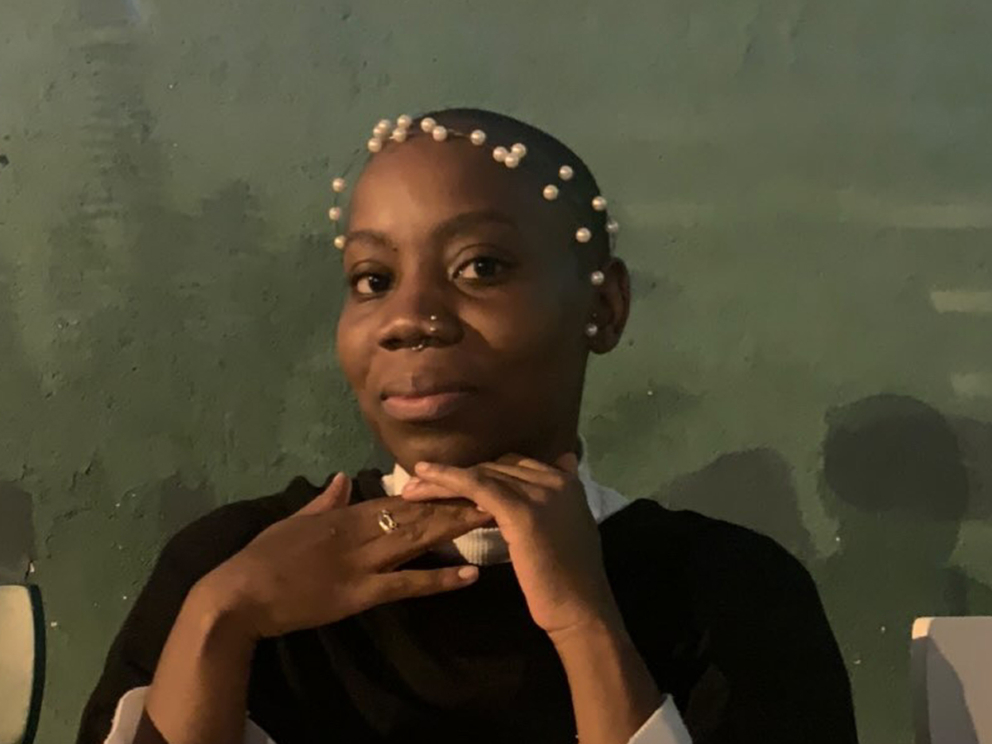
Carina Ubisse Capitine
Carina Ubisse Capitine (Mozambique, 1990) is an artist and curator who believes in the power of art to give voice to the experiences of marginalised communities and promote positive and meaningful social change. Her work as a transformative journey of selfreflection and expression, with the aim of celebrating her pleasure and affirming her multiple identities; in resistance to the invisibilisation and objectification to which she is hegemonically subjected as a woman. Carina portrays her relationship with the feminine universe as a whole, mirroring her relationship with herself and with various other manifestations of feminine energy. Her work has already been shown in a solo exhibition at the Mozambican-German Cultural Centre (CCMA) and in group exhibitions at both the CCMA and the Muenda Cultural Association, both located in Maputo; as well as at the Ethnography Museum in Leipzig, Germany.
-
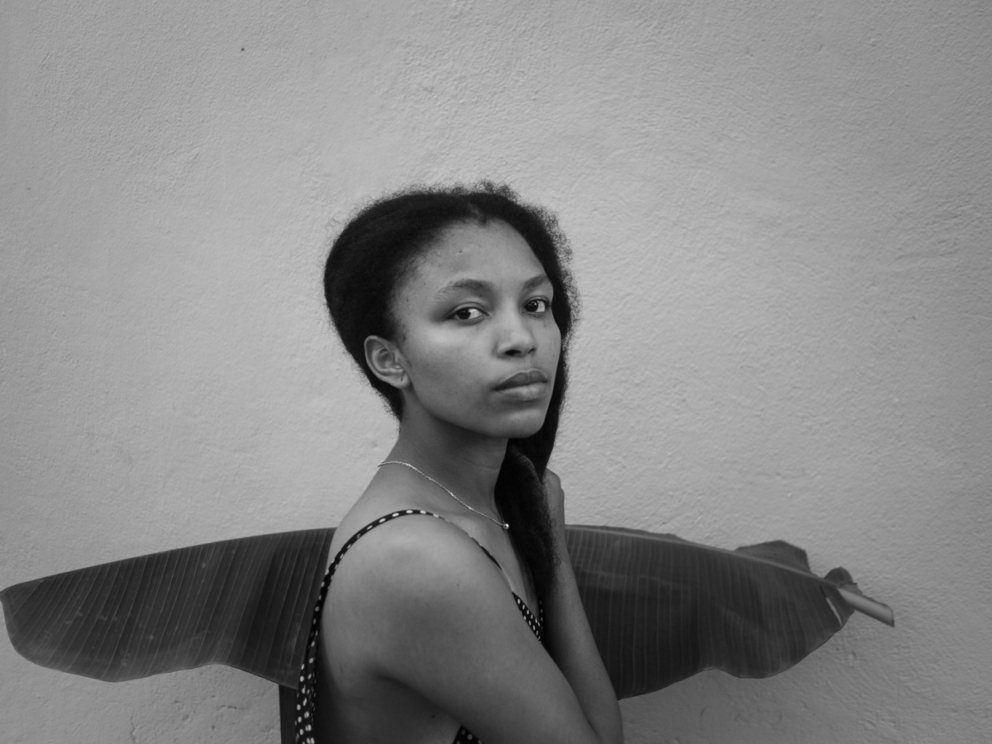
Carla Rebelo
Carla Rebelo (1994, São Tomé and Príncipe) is a self-taught visual artist who lives and works in Barcelona. Through photography, archive, video and text, an interest in processes of identity construction has been the driving force behind her artistic practice. Carla tries to reimagine geopolitical borders from an emotional and metaphysical perspective, as a way of reclaiming the vital connection between place and self, as a consequence of her own displacements. After her first steps of experimentation with photography and video while living in Taiwan from 2011 to 2016. Carla took part in the Catchupa Factory Artist Residency for new photographers in Mindelo (Cape Verde) with John Fleetwood, and received photographic training at El Observatorio in Barcelona (Spain). She is currently a contributor to the Martinican cultural magazine Zist.
-
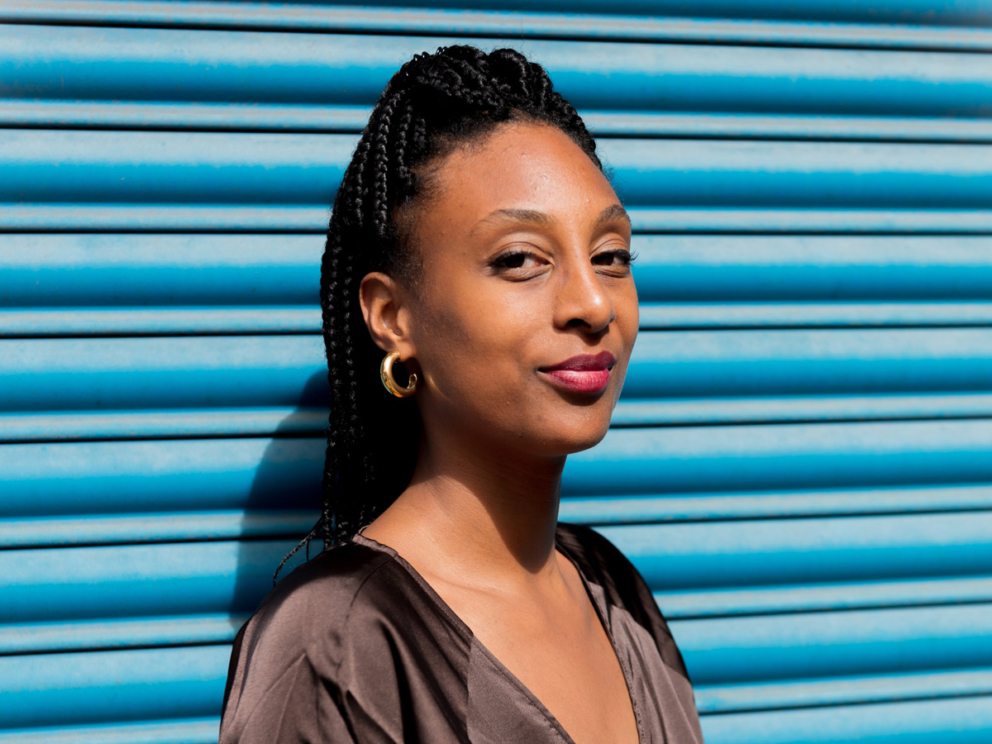
Cindy Sissokho
Cindy Sissokho is a curator, cultural producer, art consultant, and writer with a specific focus on anticolonial, social and political practices within the arts, and culture. Her curatorial work is nurtured by the urgency to broaden and disseminate knowledge and artistic production from systemically racialized and marginalized perspectives. She currently works as a curator at the Welcome Collection in London. Together with Celine Kopp, she is also co-curator of the French Pavilion at the 60th edition of the Venice Biennale in 2024, represented by artist Julien Creuzet. She previously worked as a curator at the New Art Exchange and in the Exhibitions & Public Programmes team at Nottingham Contemporary.
-
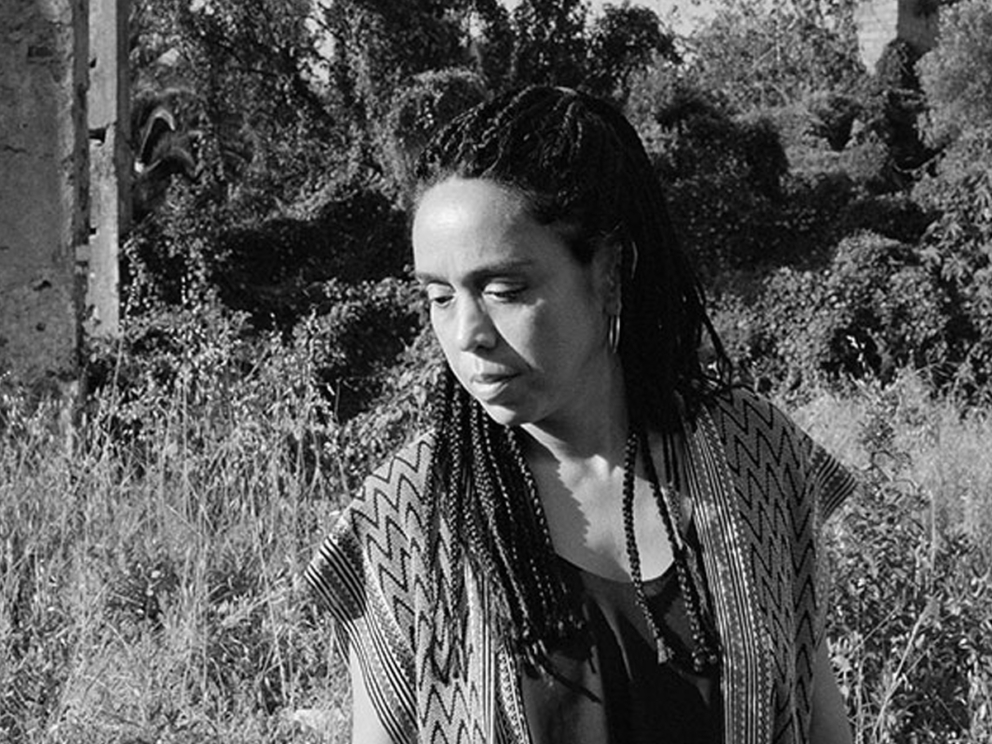
Mónica de Miranda
Mónica de Miranda is an artist and researcher. Her work is based on themes of urban archaeology and personal geographies. She works across various disciplines, including drawing, installation, film, video and sound, in their expanded forms and on the borderline between fiction and documentary. She graduated in Visual Arts from Camberwell College of Arts. Her most important exhibitions include no longer with the memory but with its future (Oratorio di San Ludovico de Nuova Icona, Venice Biennale, Italy 2022). In 2019, she was nominated for the EDP Foundation New Artists Award at Museu Maat and in 2016 was shortlisted for the Novo Banco Photo Prize. Her work is represented in various public and private collections, including: CAM Collection, MNAC, MAAT and Arquivo Fotográfico de Lisboa.
-
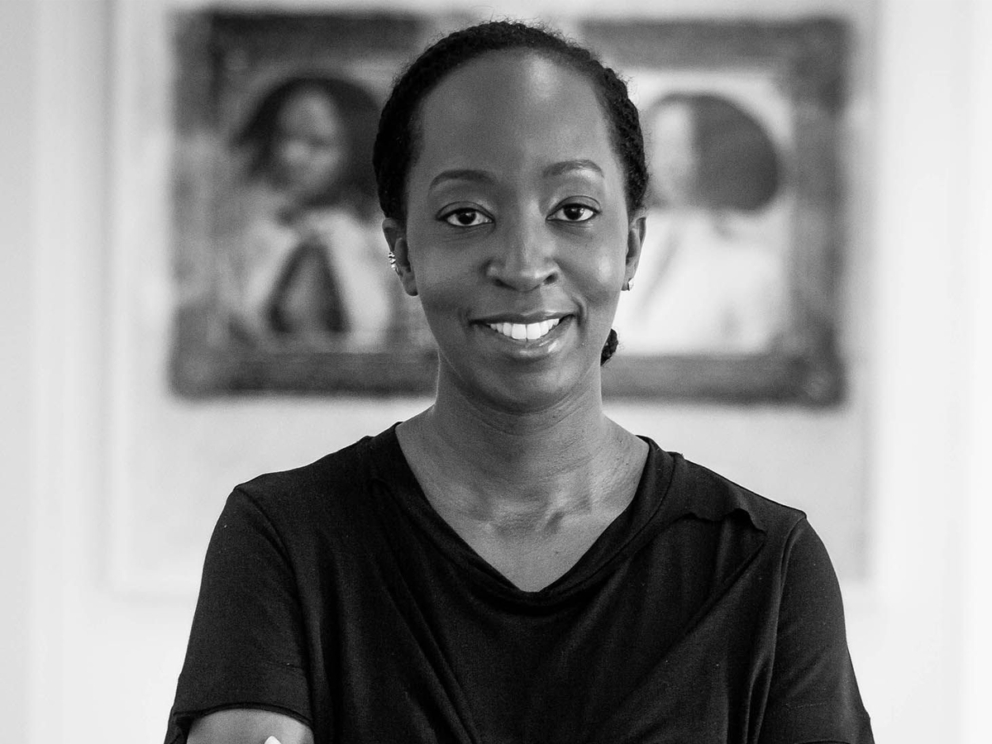
Paula Nascimento
Paula Nascimento is an architect and independent curator who graduated from the Architectural Association School of Architecture and LSB University in London. She collaborated with architectural studios in Porto and London before founding Beyond Entropy Africa with Stefano Pansera. Paula has also been a consultant on various projects, including the Angola Pavilion for Expo Milano 2015 and Expo Dubai 2020, and frequently collaborates with different institutions and artist collectives. She was a founding member of Pés Descalços, a multidisciplinary collective based in Luanda. She is currently President of the Artistic Committee of the Nesr Art Foundation, a member of the Advisory Board of the Hangar Centre for Artistic Research, associate curator of the VII Lubumbashi Biennial and recipient of the 2022 Okwui Enwezor Fellowship Research Grant from Independent Curators International.
-
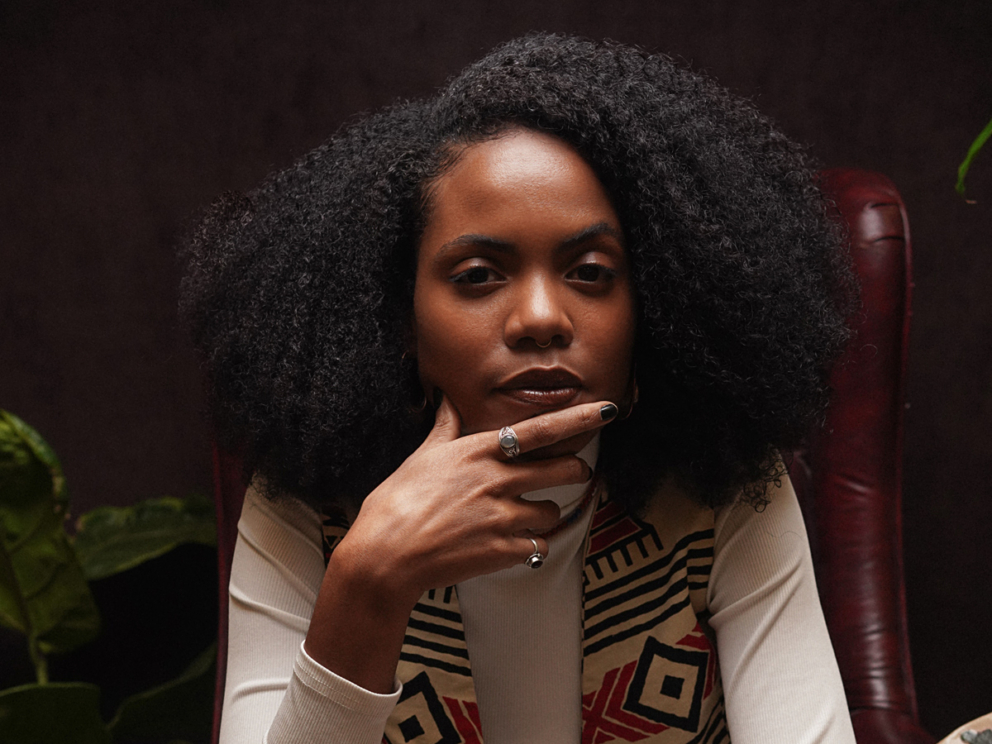
Wyssolela Moreira
Wyssolela Moreira (Angola, 1997) lives and works between Luanda (Angola) and Toronto, Canada as a multidisciplinary artist and art director. Her artistic and experimental practice uses mixed-media collage, writing, photography, installation, textiles, video art and performance to explore the complexities of an ‘I’ influenced by neo-colonial normativity. Wyssolela works at the intersection of art and spirituality and focuses on the deconstruction of colonial heritage relating to the body, identity, space, belief and health. She also uses her work to give space to marginalised experiences, challenge existing narratives about Africanism/blackness and highlight the social realities of gender inequality and human rights.
-
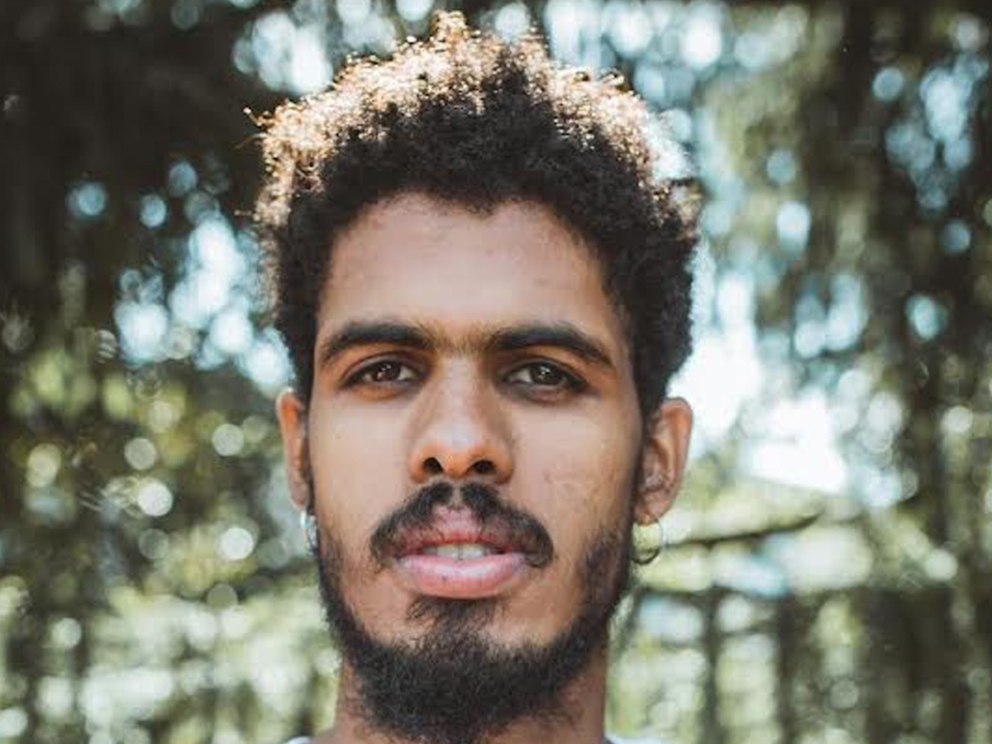
Yuran Henrique
Yuran Henrique (Cape Verde, 1993) explores the potential of materials such as fabrics, steel and pigments to create works that seek to address issues such as gestural visual culture and aesthetics. Through distortions of scale, illusion and the juxtaposition of common objects, his sculptures, paintings, photographs and installations explore themes of perception and representation, using these tools to debate the way we distribute our affections, reconfiguring our sensibilities in relation to our environment and promoting possibilities for social interaction, questioning hegemonic forms of knowledge. She was a member of the visual artists’ collective, taking part in the exhibition “Visual Arts-Cape Verde Contemporary 2016”. In 2017, she took part in the Cerveira Biennial (PT), as part of the Young Creators of the CPLP. He won the Africa No Filter 2022 Emerging Artists Fellows award.
Programme
16:00 / Welcome
16:15 / Presentation of the 'Affective Ecologies' residency concept
16:30 / Reading of Amílcar Cabral texts
17:00 / Presentation of the artists in residence
— Intermission 20 min. —18:00 / Presentation of the artists in residence
18:40 / Conversation between Cindy Sissokho and the artists in residence
19:20 / Q&A
19:40 / Tea and mingling
Credits
Main image
Artists in residency and curators © Hugo Barros
The Calouste Gulbenkian Foundation reserves the right to collect and keep records of images, sounds and voice for the diffusion and preservation of the memory of its cultural and artistic activity. For further information, please contact us through the Information Request form.
